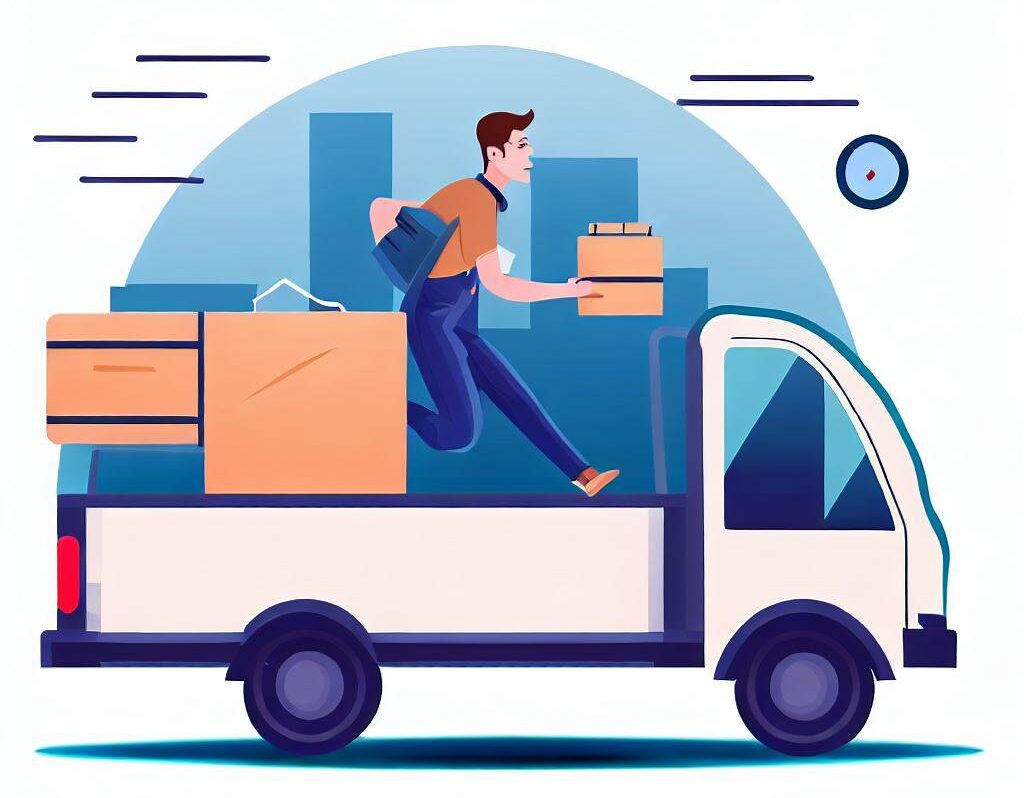ERP for Last-mile Delivery Services: Managing Last-Step Deliveries
Streamline Last-Mile Delivery with ERP Solutions. Discover how Enterprise Resource Planning (ERP) addresses challenges faced by delivery services, optimizing efficiency and enhancing customer experience. Elevate your last-mile operations with ERP integration.
The last-mile delivery services business encounters various pain points and bottlenecks due to the complexities of delivering packages to the final destination. However, implementing an Enterprise Resource Planning (ERP) system can offer effective solutions to address many of these challenges.
Benefits of ERP Implementation for Last-mile Delivery Services
Urban Congestion:
ERP’s route optimization and real-time traffic updates streamline navigation in congested areas.
Address Accuracy:
ERP’s automated address validation ensures accurate recipient information.
Traffic Delays:
ERP’s dynamic route adjustments help drivers navigate around traffic disruptions.
Delivery Time Windows:
ERP’s scheduling and dispatching features enable on-time deliveries within specific time windows.
Weather Conditions:
ERP’s real-time tracking allows customers to stay updated on delivery status during adverse weather.
Peak Periods:
ERP’s demand forecasting optimizes resources to handle high package volumes during peak seasons.
Last-Mile Distance:
ERP’s route optimization reduces last-mile distances, minimizing delivery time and costs.
Parcel Theft:
ERP’s package tracking and signature verification enhance package security and prevent theft.
Restricted Areas:
ERP’s geofencing capabilities help drivers navigate restricted areas.
Fragile Items Handling:
ERP’s special handling instructions ensure safe delivery of delicate items.
E-commerce Returns:
ERP’s reverse logistics module efficiently manages returns from failed deliveries.
Customer Absenteeism:
ERP’s delivery notifications and rescheduling options reduce missed deliveries.
Heavy Traffic Zones:
ERP’s traffic insights assist in planning efficient routes around heavy traffic zones.
Unpredictable Delivery Times:
ERP’s real-time tracking provides accurate delivery estimates to customers.
Vehicle Breakdowns:
ERP’s preventive maintenance scheduling minimizes the risk of vehicle breakdowns.
See How My Company Can Massively Automate Your Company Departments
Custom CRM Development – For Organizations to manage its Customer Interactions in addition to Sales, Marketing, Billing, Products, Services, Contacts, Customer Support, among other things.
Custom ERP Development – For Manufacturers to handle BOM, Quotation, Order, RFQ, PO, SOA, Manufacturing, Trading, Inventory, Quality Control, Logistics, Shipments, and so on.

Driver Shortages:
ERP’s workforce management module assists in recruiting and retaining skilled delivery personnel.
Parking Challenges:
ERP’s location-based parking suggestions aid drivers in finding suitable spots.
Access to Apartments:
ERP’s detailed address information ensures smooth delivery to apartments.
Parcel Size Limitations:
ERP’s size and weight management help handle oversized parcels.
First-Time Delivery Success:
ERP’s route optimization and customer data enhance first-time delivery success.
Failed Delivery Attempts:
ERP’s delivery status updates inform customers about failed attempts and rescheduling.
Reverse Logistics:
ERP’s automated return processing streamlines reverse logistics.
Rural Deliveries:
ERP’s mapping features optimize delivery routes to remote rural areas.
Customer Communication:
ERP’s automated notifications keep customers informed about delivery progress.
Lack of Tracking Visibility:
ERP’s real-time tracking and customer portals provide visibility into delivery status.
Environmental Concerns:
ERP’s route optimization minimizes fuel consumption and carbon footprint.
Delivery Confirmation:
ERP’s electronic proof of delivery confirms successful deliveries.
Peak Season Hiring:
ERP’s workforce planning module helps manage seasonal workforce requirements.
Regulatory Compliance:
ERP’s adherence to regulatory standards ensures compliant delivery operations.
Delivery Cost Optimization:
ERP’s cost analysis tools optimize delivery expenses while maintaining service quality.
Implementing an ERP system tailored to last-mile delivery services streamlines operations, enhances efficiency, improves customer experience, and empowers businesses to excel in the competitive delivery services industry.
